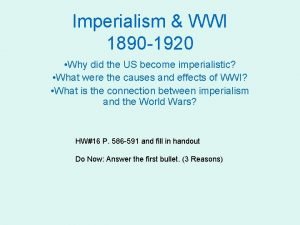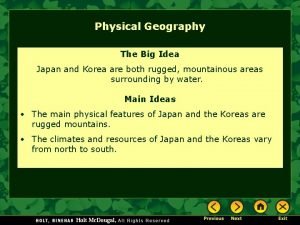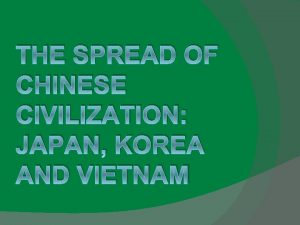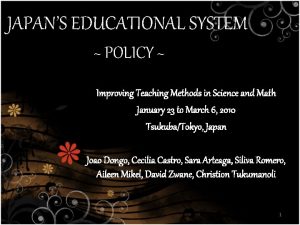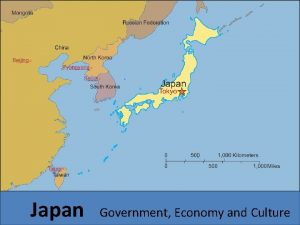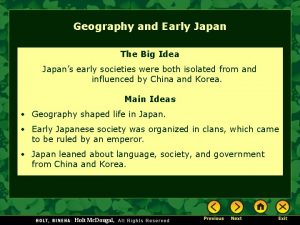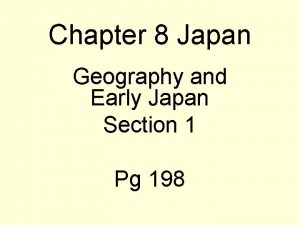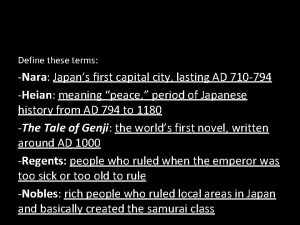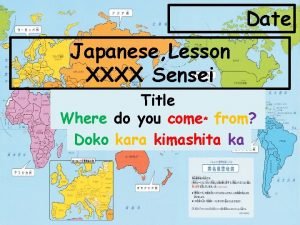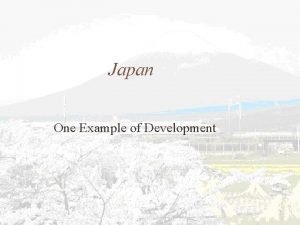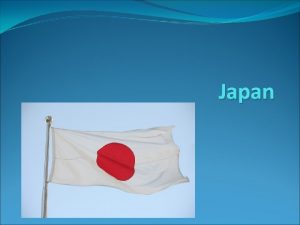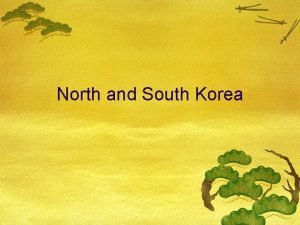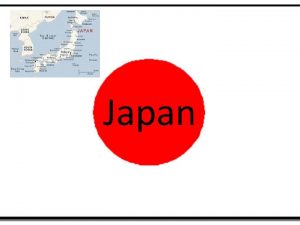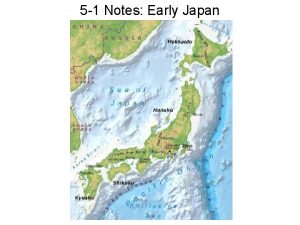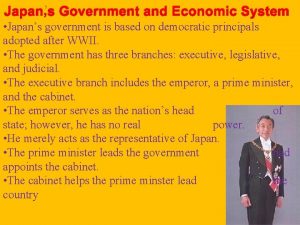KOREA AND IMPERIALISTIC JAPAN JAPANS MOTIVATION Security Korea










- Slides: 10

KOREA AND IMPERIALISTIC JAPAN

JAPAN’S MOTIVATION § Security § Korea was too close to Japan to allow Korea or another power to have a military presence § Natural Resources § Close access to Korea’s coal and iron ore deposits to fuel Japan’s industrial base § Foreign Trade § Open markets both in Korea and international trade opportunities

HOW IMPERIAL POWER GAINED CONTROL § § § Colonialism and Imperialism throughout other governments. In early 20 th century, Western countries were fighting for trade and territory in East Asia while Japan attempted to find modern colonial powers. Japanese government, Meiji, wanted to separate Korea from Qing Dyansty and make it theirs. Korea was ruled by Japanese during beginning of the 21 st century and was under Japanese protection. Japan wanted to expand into Korea because of their raw materials, farmland, and security. Japans new government turned to the hands of Korea and then to the Qing dynasty of China.

EARLY EXPANSION OF JAPANESE § Expanded into Kokkaido which converted all of the hunter-gathers to agriculturists. § Japan opened up Korea’s ports for trade and more territory access. Even though Korea refused these requests, Japan still demanded forming the new Meiji government. § Controlled the Rhyukyuans. Then later expanded into China.

JAPAN TAKES PIECES OF KOREA § January 1876 - Japan employs gunboat diplomacy to pressure Korea to sign the Treaty of Ganghwa that granted extraterritorial rights and opens three Korean ports to Japanes trade § April 1895 - Treaty of Shimonseki China recognized total independence of Korea ceded the Liaodong Peninsula, Taiwan and Penghu Islands to Japan “in prepetuity. ” § 1905 - Conclusion of the Russo Japanese War, Russia recognizes Korea as part of Japanユs sphere of influence. Japan annexes Korea in 1910.

EFFECT ON KOREANS § Empress Myeongseong of Korea was assassinated by Japanese agents § 1905 - Japan forced Korea to sign the Eulsa Treaty making Korea a protectorate § 1910 - Japan annexed Korea § Korean Independence Movements – March 1, 1919 “Three-One Movement” or Manse Demonstrations – 7000 people were killed by Japanese police and soldiers

MARCH 1 ST AFTERMATH § According to The Bloody History of the Korean Independence Movement by Park Eunsik, § 7, 509 people were killed, § 15, 849 were wounded, § 715 private homes, 47 churches, and 2 school buildings were destroyed by fire, § 46, 303 were arrested, § 10, 000 were tried and convicted

TODAY’S KOREA § Korea is a divided nation – separating families, cultures, economies and political alliances § South Korea has become a manufacturing giant with companies such as Hyundai & LG. North Korea struggles to feeds it’s people and threatens it’s neighbors with nuclear weapons § South Korea is politically aligned with Britain, Japan and USA. North Korea is politically aligned with Russia and China

CONCLUSION § Korea and it’s people were greatly affected by Japan imperialism and occupation § Korea’s cultural and religious leaders drew up a “Proclamation of Independence” § March 1 is a national holiday in both North and South Korea

THANK YOU! Danielle Brandi Caley
